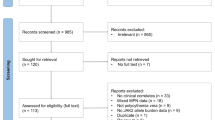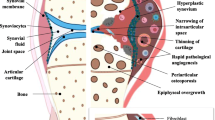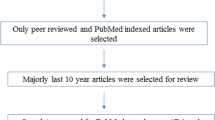Abstract
For children with juvenile idiopathic arthritis (JIA) who fail to respond to methotrexate, the delay in identifying the optimal treatment at an early stage of disease can lead to long-term joint damage. Recent studies indicate that relevant variants to predict methotrexate response in JIA are those in 5-aminoimidazole-4-carboxamide ribonucleotide-transformylase (ATIC), inosine-triphosphate-pyrophosphatase (ITPA) and solute-liquid-carrier-19A1 genes. The purpose of the study was, therefore, to explore the role of these candidate genetic factors on methotrexate response in an Italian cohort of children with JIA. Clinical response to methotrexate was evaluated as clinical remission stable for a 6-month period, as ACRPed score and as change in Juvenile Arthritis Disease score. The most relevant SNPs for each gene considered were assayed on patients’ DNA. ITPA activity was measured in patients’ erythrocytes. Sixty-nine patients with JIA were analyzed: 52.2 % responded to therapy (ACRPed70 score), while 37.7 % reached clinical remission stable for 6 months. ATIC rs2372536 GG genotype was associated with improved clinical remission (adjusted p value = 0.0090). For ITPA, rs1127354 A variant was associated with reduced clinical remission: (adjusted p value = 0.028); this association was present even for patients with wild-type ITPA and low ITPA activity. These preliminary results indicate that genotyping of ATIC rs2372536 and ITPA rs1127354 variants or measuring ITPA activity could be useful to predict methotrexate response in children with JIA after validation by further prospective studies on a larger patient cohort.


Similar content being viewed by others
References
Ravelli A, Martini A (2007) Juvenile idiopathic arthritis. Lancet 369(9563):767–778
Giannini EH, Brewer EJ, Kuzmina N, Shaikov A, Maximov A, Vorontsov I et al (1992) Methotrexate in resistant juvenile rheumatoid arthritis. Results of the USA–USSR double-blind, placebo-controlled trial. The Pediatric Rheumatology Collaborative Study Group and The Cooperative Children’s Study Group. N Engl J Med 326(16):1043–1049
Becker ML (2011) Optimization of pediatric rheumatology therapeutics. Clin Pharmacol Ther 91(4):597–606
Ruperto N, Murray KJ, Gerloni V, Wulffraat N, de Oliveira SK, Falcini F et al (2004) A randomized trial of parenteral methotrexate comparing an intermediate dose with a higher dose in children with juvenile idiopathic arthritis who failed to respond to standard doses of methotrexate. Arthritis Rheum 50(7):2191–2201
Wallace CA, Giannini EH, Spalding SJ, Hashkes PJ, O’Neil KM, Zeft AS et al (2012) Trial of early aggressive therapy in polyarticular juvenile idiopathic arthritis. Arthritis Rheum 64(6):2012–2021
Mikkelsen TS, Thorn CF, Yang JJ, Ulrich CM, French D, Zaza G et al (2011) PharmGKB summary: methotrexate pathway. Pharmacogenet Genomics 21(10):679–686
Barredo JC, Synold TW, Laver J, Relling MV, Pui CH, Priest DG et al (1994) Differences in constitutive and post-methotrexate folylpolyglutamate synthetase activity in B-lineage and T-lineage leukemia. Blood 84(2):564–569
Hinks A, Moncrieffe H, Martin P, Ursu S, Lal S, Kassoumeri L et al (2011) Association of the 5-aminoimidazole-4-carboxamide ribonucleotide transformylase gene with response to methotrexate in juvenile idiopathic arthritis. Ann Rheum Dis 70(8):1395–1400
Dervieux T, Wessels JA, van der Straaten T, Penrod N, Moore JH, Guchelaar HJ et al (2009) Gene-gene interactions in folate and adenosine biosynthesis pathways affect methotrexate efficacy and tolerability in rheumatoid arthritis. Pharmacogenet Genomics 19(12):935–944
de Rotte MC, Bulatovic M, Heijstek MW, Jansen G, Heil SG, van Schaik RH et al (2012) ABCB1 and ABCC3 gene polymorphisms are associated with first-year response to methotrexate in juvenile idiopathic arthritis. J Rheumatol 39(10):2032–2040
Yanagimachi M, Naruto T, Hara T, Kikuchi M, Hara R, Miyamae T et al (2011) Influence of polymorphisms within the methotrexate pathway genes on the toxicity and efficacy of methotrexate in patients with juvenile idiopathic arthritis. Br J Clin Pharmacol 71(2):237–243
Cobb J, Cule E, Moncrieffe H, Hinks A, Ursu S, Patrick F et al (2014) Genome-wide data reveal novel genes for methotrexate response in a large cohort of juvenile idiopathic arthritis cases. Pharmacogenomics J 14(4):356–364
Duurland CL, Wedderburn LR (2014) Current developments in the use of biomarkers for juvenile idiopathic arthritis. Curr Rheumatol Rep 16(3):406
Giannini EH, Ruperto N, Ravelli A, Lovell DJ, Felson DT, Martini A (1997) Preliminary definition of improvement in juvenile arthritis. Arthritis Rheum 40(7):1202–1209
Wallace CA, Ruperto N, Giannini E (2004) Preliminary criteria for clinical remission for select categories of juvenile idiopathic arthritis. J Rheumatol 31(11):2290–2294
Consolaro A, Ruperto N, Bazso A, Pistorio A, Magni-Manzoni S, Filocamo G et al (2009) Development and validation of a composite disease activity score for juvenile idiopathic arthritis. Arthritis Rheum 61(5):658–666
Owen SA, Hider SL, Martin P, Bruce IN, Barton A, Thomson W (2012) Genetic polymorphisms in key methotrexate pathway genes are associated with response to treatment in rheumatoid arthritis patients. Pharmacogenomics J 13(3):227–234
Dervieux T, Wessels JA, Kremer JM, Padyukov L, Seddighzadeh M, Saevarsdottir S et al (2011) Patterns of interaction between genetic and nongenetic attributes and methotrexate efficacy in rheumatoid arthritis. Pharmacogenet Genomics 22(1):1–9
Dervieux T, Furst D, Lein DO, Capps R, Smith K, Walsh M et al (2004) Polyglutamation of methotrexate with common polymorphisms in reduced folate carrier, aminoimidazole carboxamide ribonucleotide transformylase, and thymidylate synthase are associated with methotrexate effects in rheumatoid arthritis. Arthritis Rheum 50(9):2766–2774
Shipkova M, Lorenz K, Oellerich M, Wieland E, von Ahsen N (2006) Measurement of erythrocyte inosine triphosphate pyrophosphohydrolase (ITPA) activity by HPLC and correlation of ITPA genotype–phenotype in a Caucasian population. Clin Chem 52(2):240–247
Haldane JB (1956) The estimation and significance of the logarithm of a ratio of frequencies. Ann Hum Genet 20(4):309–311
Woo P, Southwood TR, Prieur AM, Dore CJ, Grainger J, David J et al (2000) Randomized, placebo-controlled, crossover trial of low-dose oral methotrexate in children with extended oligoarticular or systemic arthritis. Arthritis Rheum 43(8):1849–1857
Klein A, Kaul I, Foeldvari I, Ganser G, Urban A, Horneff G (2012) Efficacy and safety of oral and parenteral methotrexate therapy in children with juvenile idiopathic arthritis: an observational study with patients from the German Methotrexate Registry. Arthritis Care Res 64(9):1349–1356
Bulatovic Calasan M, den Boer E, de Rotte MC, Vastert SJ, Kamphuis S, de Jonge R et al (2013) Methotrexate polyglutamates in erythrocytes are associated with lower disease activity in juvenile idiopathic arthritis patients. Ann Rheum Dis. doi:10.1136/annrheumdis-2013-203723
Dervieux T, Furst D, Lein DO, Capps R, Smith K, Caldwell J et al (2005) Pharmacogenetic and metabolite measurements are associated with clinical status in patients with rheumatoid arthritis treated with methotrexate: results of a multicentred cross sectional observational study. Ann Rheum Dis 64(8):1180–1185
Baggott JE, Vaughn WH, Hudson BB (1986) Inhibition of 5-aminoimidazole-4-carboxamide ribotide transformylase, adenosine deaminase and 5′-adenylate deaminase by polyglutamates of methotrexate and oxidized folates and by 5-aminoimidazole-4-carboxamide riboside and ribotide. Biochem J 236(1):193–200
Dervieux T, Kremer J, Lein DO, Capps R, Barham R, Meyer G et al (2004) Contribution of common polymorphisms in reduced folate carrier and gamma-glutamylhydrolase to methotrexate polyglutamate levels in patients with rheumatoid arthritis. Pharmacogenetics 14(11):733–739
Wessels JA, de Vries-Bouwstra JK, Heijmans BT, Slagboom PE, Goekoop-Ruiterman YP, Allaart CF et al (2006) Efficacy and toxicity of methotrexate in early rheumatoid arthritis are associated with single-nucleotide polymorphisms in genes coding for folate pathway enzymes. Arthritis Rheum 54(4):1087–1095
Drozdzik M, Rudas T, Pawlik A, Gornik W, Kurzawski M, Herczynska M (2007) Reduced folate carrier-1 80G>A polymorphism affects methotrexate treatment outcome in rheumatoid arthritis. Pharmacogenomics J 7(6):404–407
Lee YC, Cui J, Costenbader KH, Shadick NA, Weinblatt ME, Karlson EW (2009) Investigation of candidate polymorphisms and disease activity in rheumatoid arthritis patients on methotrexate. Rheumatology (Oxf, Engl) 48(6):613–617
Wessels JA, Kooloos WM, De Jonge R, De Vries-Bouwstra JK, Allaart CF, Linssen A et al (2006) Relationship between genetic variants in the adenosine pathway and outcome of methotrexate treatment in patients with recent-onset rheumatoid arthritis. Arthritis Rheum 54(9):2830–2839
Sumi S, Marinaki AM, Arenas M, Fairbanks L, Shobowale-Bakre M, Rees DC et al (2002) Genetic basis of inosine triphosphate pyrophosphohydrolase deficiency. Hum Genet 111(4–5):360–367
Stocco G, Yang W, Crews KR, Thierfelder WE, Decorti G, Londero M et al (2012) PACSIN2 polymorphism influences TPMT activity and mercaptopurine-related gastrointestinal toxicity. Hum Mol Genet 21(21):4793–4804
Moncrieffe H, Hinks A, Ursu S, Kassoumeri L, Etheridge A, Hubank M et al (2010) Generation of novel pharmacogenomic candidates in response to methotrexate in juvenile idiopathic arthritis: correlation between gene expression and genotype. Pharmacogenet Genomics 20(11):665–676
Acknowledgments
This study was supported by grants from the Italian Ministry of Health and by a donation from foundation Alberto and Kathleen Casali, Trieste, Italy.
Conflict of interest
The authors declare that they have no conflict of interest.
Author information
Authors and Affiliations
Corresponding author
Electronic supplementary material
Below is the link to the electronic supplementary material.
Rights and permissions
About this article
Cite this article
Pastore, S., Stocco, G., Moressa, V. et al. 5-Aminoimidazole-4-carboxamide ribonucleotide-transformylase and inosine-triphosphate-pyrophosphatase genes variants predict remission rate during methotrexate therapy in patients with juvenile idiopathic arthritis. Rheumatol Int 35, 619–627 (2015). https://doi.org/10.1007/s00296-014-3131-y
Received:
Accepted:
Published:
Issue Date:
DOI: https://doi.org/10.1007/s00296-014-3131-y




